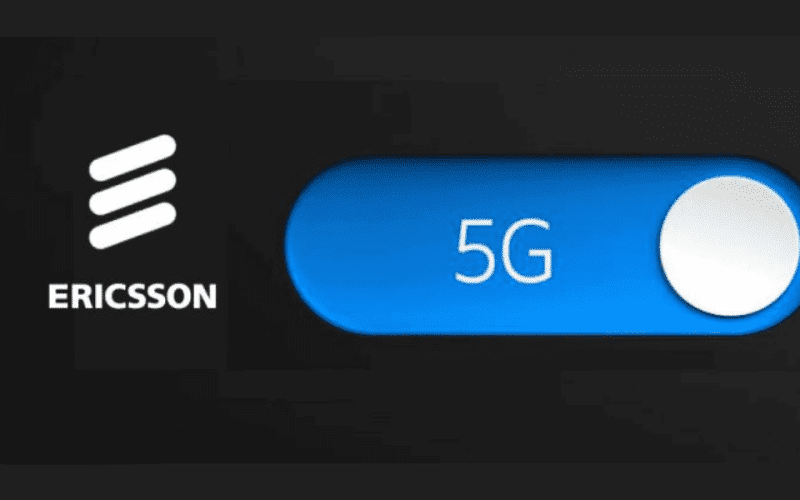Introduction: Ericsson’s 5G Gamble
In the fast-paced world of telecommunications, Ericsson, a key player in the industry, is making a bold bet. Recent headlines have been abuzz with Ericsson’s significant foray into software development, seen as a strategic move to capitalize on the burgeoning 5G landscape. This article delves into the specifics of Ericsson’s gamble, the driving factors behind it, and the potential implications for the company’s revenue streams in the era of 5G. Additionally, we’ll present a comprehensive table summarizing key aspects of this strategic shift before drawing our conclusions.
Unpacking Ericsson’s 5G Gamble
Reports have confirmed that Ericsson is placing a substantial focus on software development as a core component of its 5G strategy. This shift represents a significant departure from the traditional hardware-centric approach that has long defined the telecommunications industry. Several key factors are driving this gamble.
Seizing the 5G Opportunity
The rollout of 5G networks worldwide presents a massive opportunity for telecommunications companies. Ericsson’s strategic move into software is a response to the evolving needs of this technology landscape. Software solutions can enhance the capabilities of 5G networks and offer new revenue streams.
Meeting Diverse Customer Demands
With 5G, telecommunications customers are demanding more than just connectivity. They seek innovative services and solutions that can be tailored to their specific needs. Ericsson’s investment in software enables the creation of customized offerings to meet these diverse demands.
Embracing Network Virtualization
Network virtualization is a key trend in the telecom industry. By developing software solutions, Ericsson can participate more actively in this virtualization wave, offering more flexible and scalable network services to its customers.
Competing with Tech Giants
Tech giants like Google and Amazon are encroaching into the telecom space. Ericsson’s software push positions the company to compete more effectively by leveraging its domain expertise and offering comprehensive solutions.
Implications and Industry Impact
The strategic shift towards software development has far-reaching implications, not only for Ericsson but for the telecommunications industry as a whole.
Revenue Diversification
Ericsson’s move into software allows for revenue diversification. Beyond hardware sales, the company can generate income from software licensing, maintenance, and subscription-based models, creating a more resilient business model.
Enhanced Network Capabilities
Software-driven solutions can significantly enhance the capabilities of 5G networks. Ericsson’s offerings can enable faster and more reliable connections, making it an attractive partner for telecom operators seeking to deliver superior services.
Competitive Edge
Ericsson’s investment in software development positions it as a formidable competitor in the evolving telecom landscape. It can leverage its deep industry knowledge and trusted relationships to provide end-to-end solutions.
Accelerating Innovation
Software development allows for more rapid innovation cycles. Ericsson can respond quickly to emerging technology trends and customer demands, ensuring it remains at the forefront of the 5G revolution.

A Comparative Analysis
To provide a comprehensive view of Ericsson’s strategic shift into software development and its potential impact, let’s compare this move with other prominent players in the telecom industry:
| Company | Strategic Focus | Driving Factors | Implications | Competitive Edge |
|---|---|---|---|---|
| Ericsson | Software Development for 5G | Seizing 5G Opportunity, Customer Demands, Network Virtualization, Competition with Tech Giants | Revenue Diversification, Enhanced Network Capabilities, Competitive Edge, Accelerating Innovation | Deep Industry Knowledge, Trusted Relationships |
| Nokia | End-to-End 5G Solutions | Expanding 5G Portfolio, Industry Partnerships, Network Infrastructure, Competition with Tech Giants | Comprehensive Offerings, Industry Collaboration, Competitive Edge, Innovation Leadership | Long-standing Expertise, Global Reach |
| Huawei | Full-Stack 5G Ecosystem | Global 5G Leadership, Research and Development, Network Infrastructure, Competition with Tech Giants | Comprehensive Ecosystem, Global Dominance, Competitive Edge, Technological Advancements | Extensive R&D Investments, Strong Market Presence |
| Cisco | Network Automation and Security | Network Transformation, Cloud Integration, Cybersecurity, Competition with Tech Giants | Enhanced Network Operations, Secure Environments, Competitive Edge, Industry Trust | Network Expertise, Cybersecurity Focus |
The comparative analysis underscores that Ericsson’s strategic move into software development aligns with capturing 5G opportunities, diversifying revenue streams, and gaining a competitive edge through its industry knowledge and relationships.
Conclusion
Ericsson’s bold gamble on software development in the 5G era reflects the dynamic nature of the telecommunications industry. While the exact outcomes of this move remain to be seen, it positions Ericsson to not only meet the evolving demands of the telecom landscape but also to lead in innovation and competitiveness.
The implications, from diversifying revenue streams to enhancing network capabilities and maintaining a competitive edge, highlight the potential benefits of this strategic shift. As the 5G revolution continues to unfold, Ericsson’s software-driven approach places it at the forefront of shaping the future of telecommunications.












